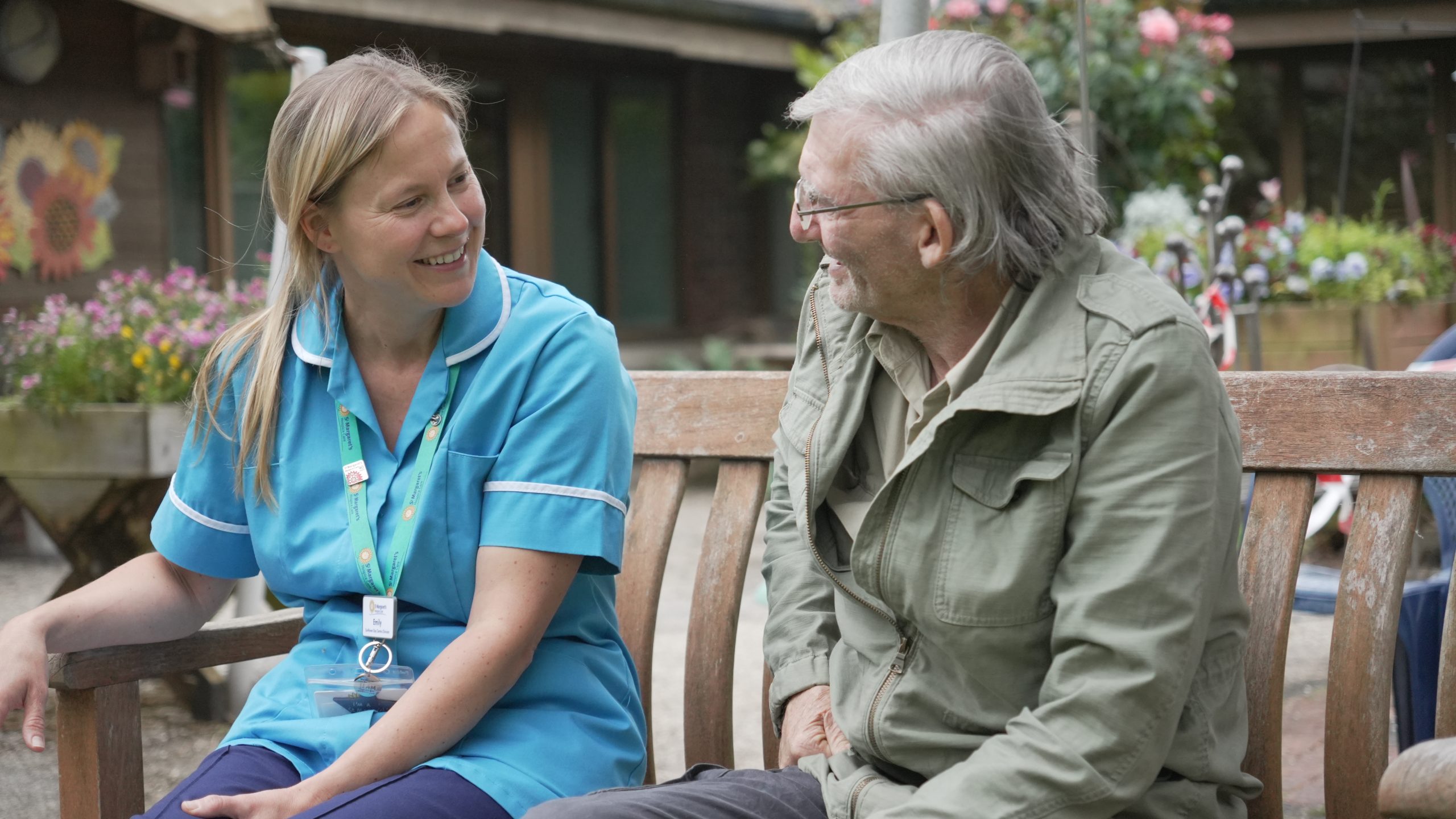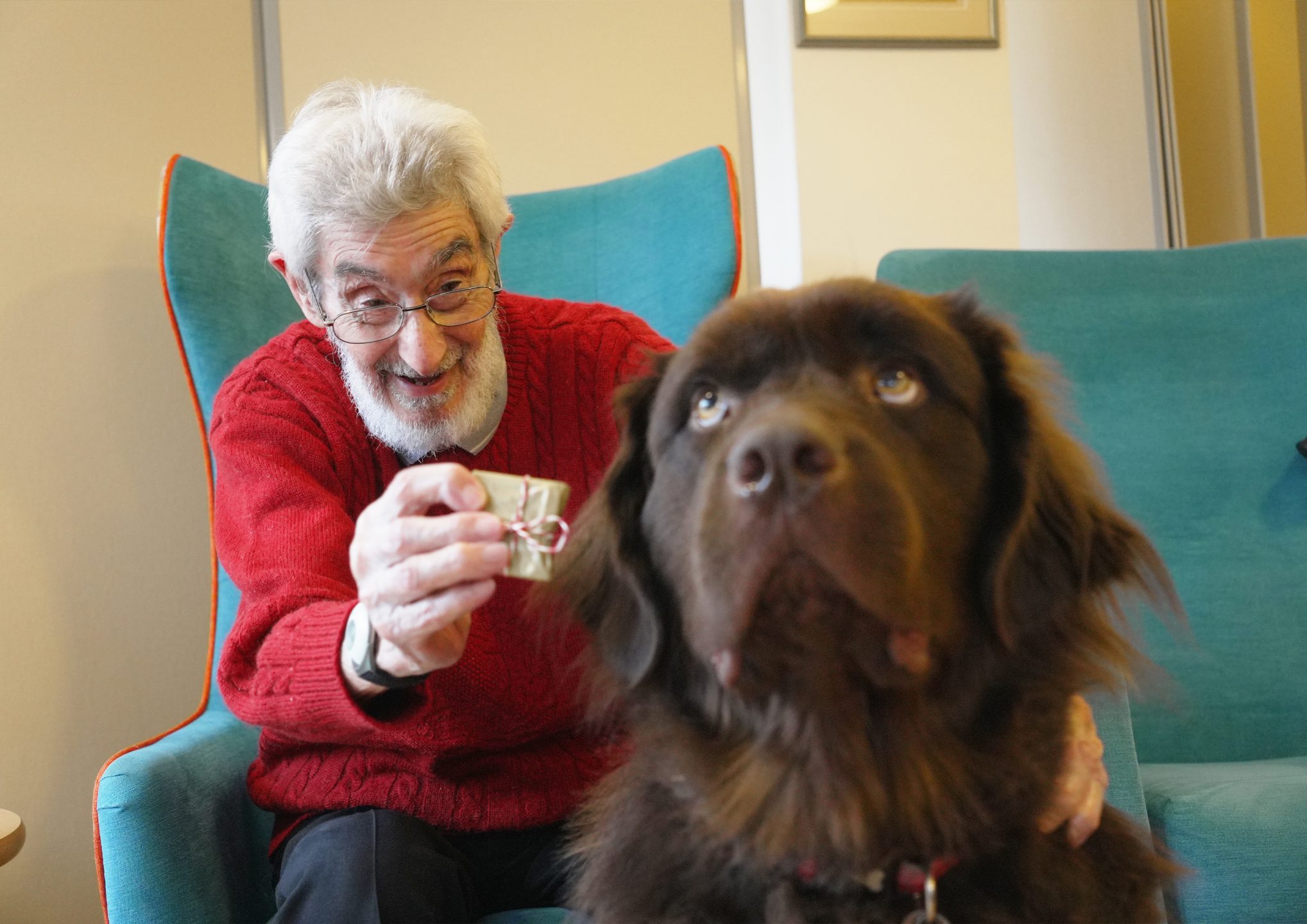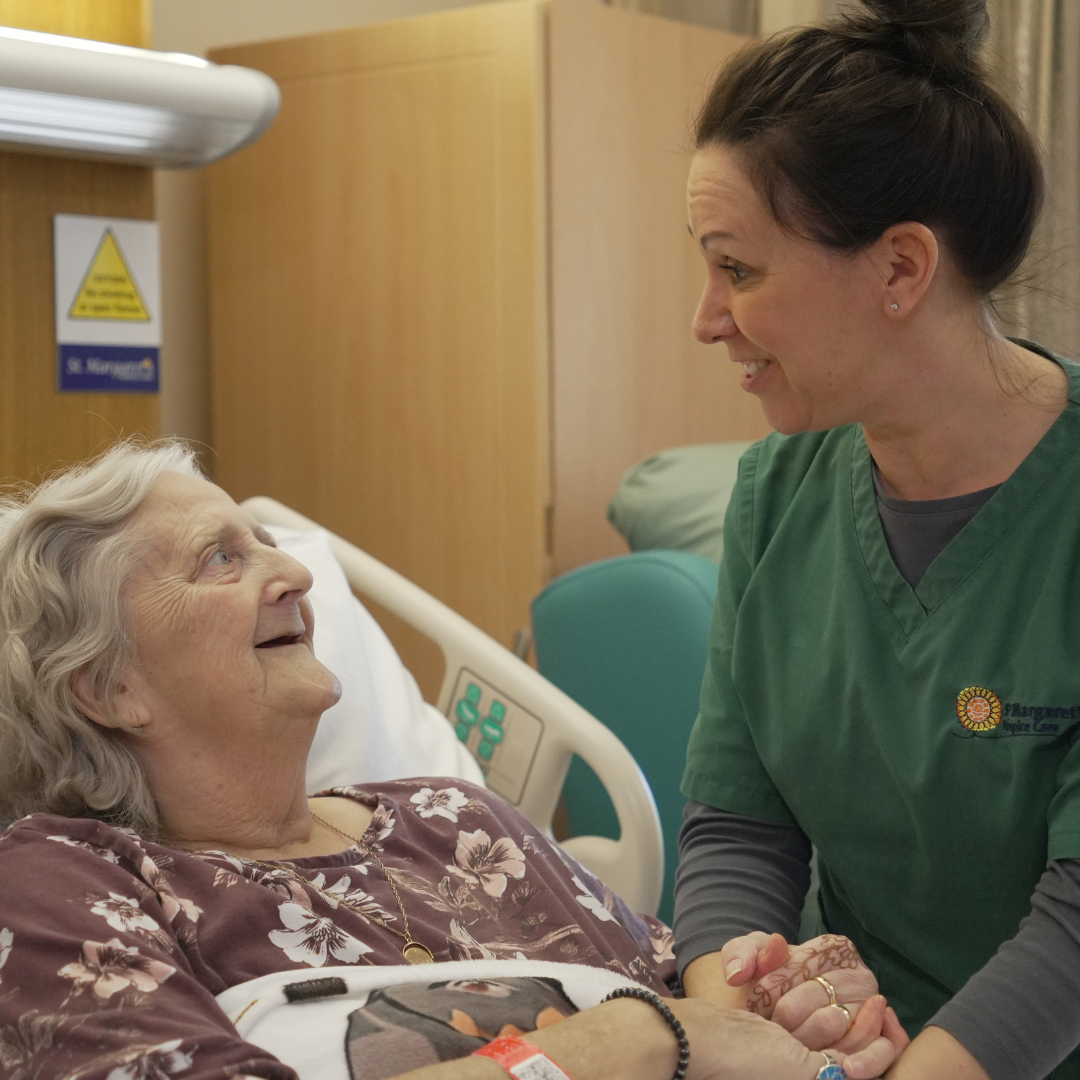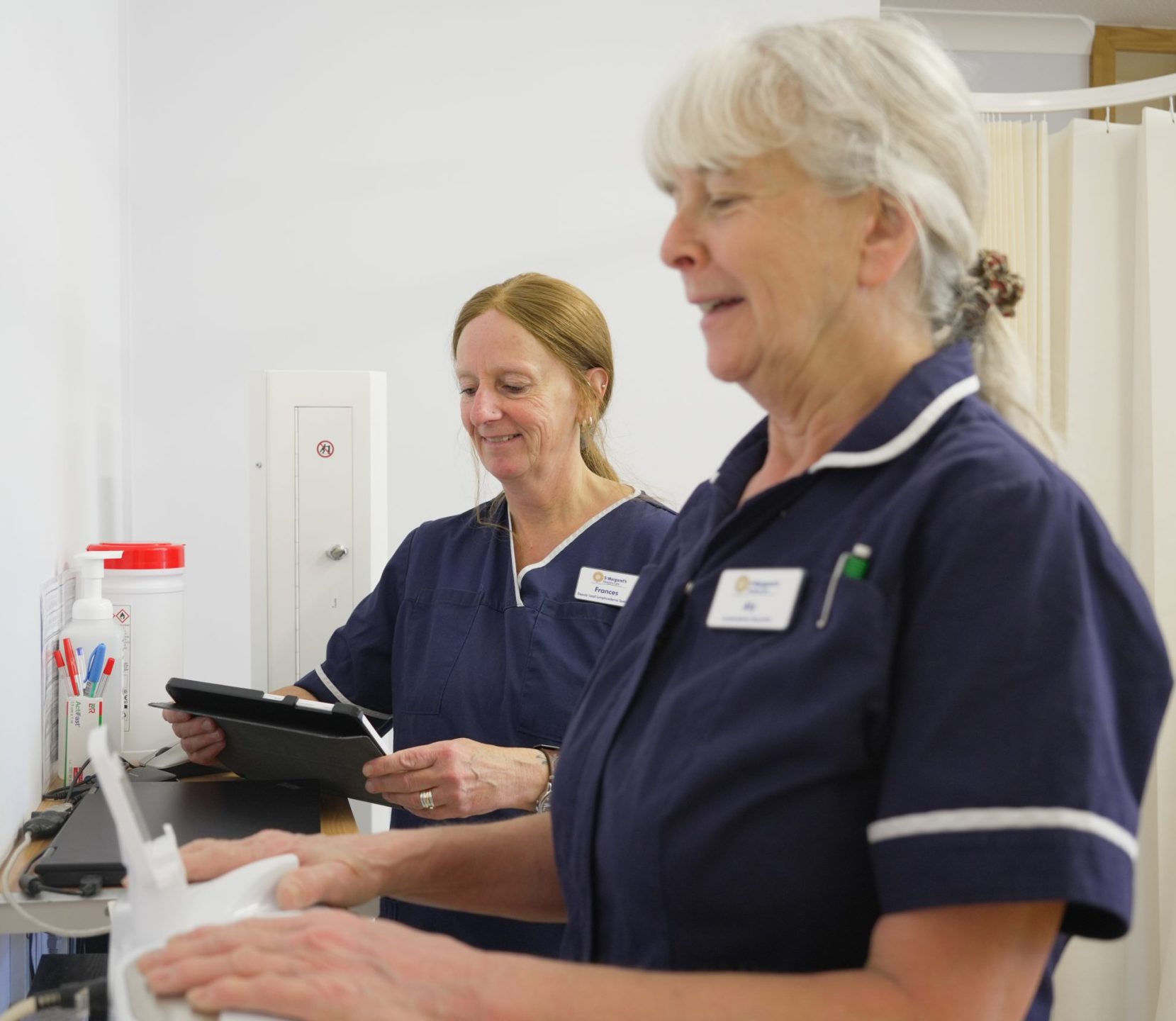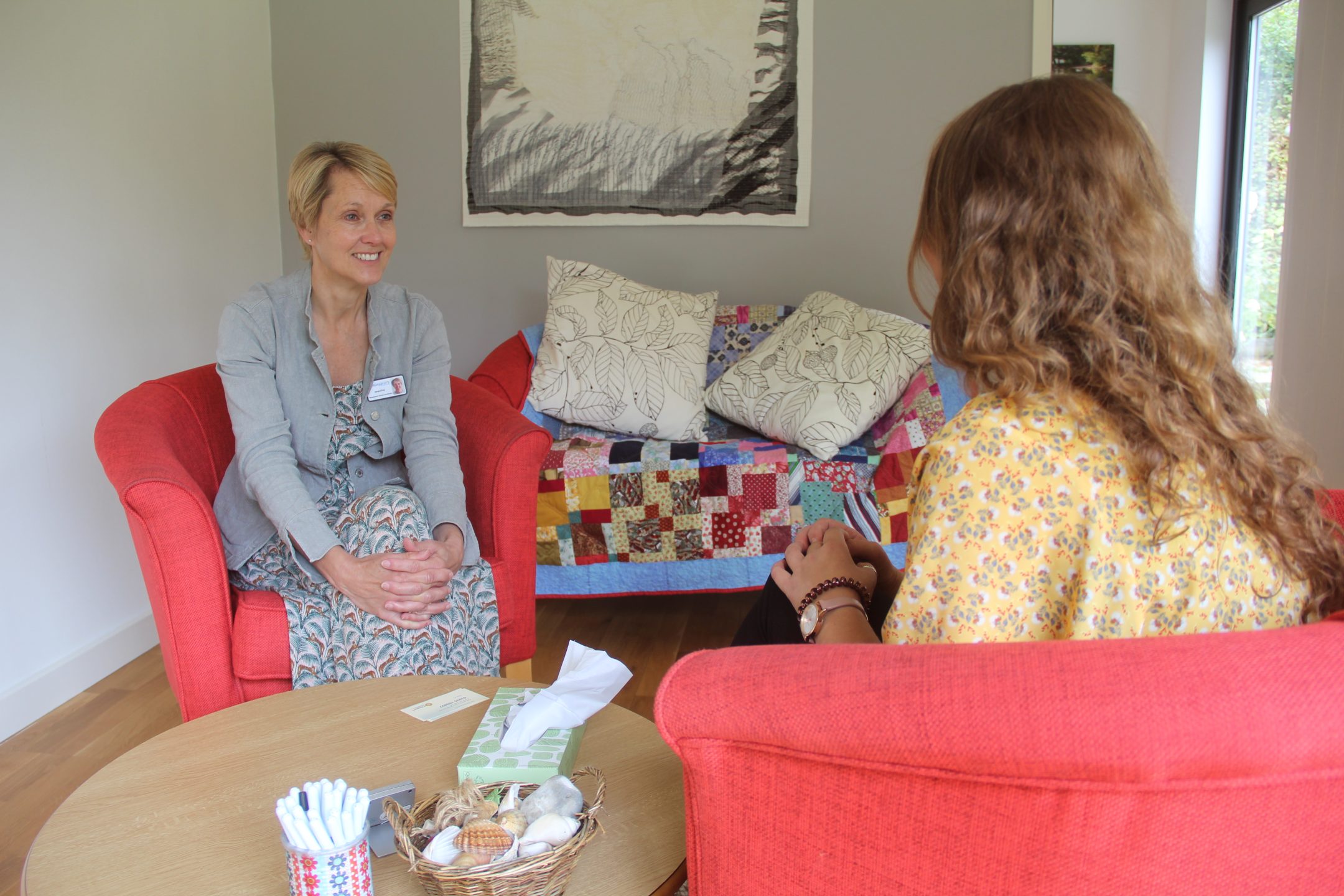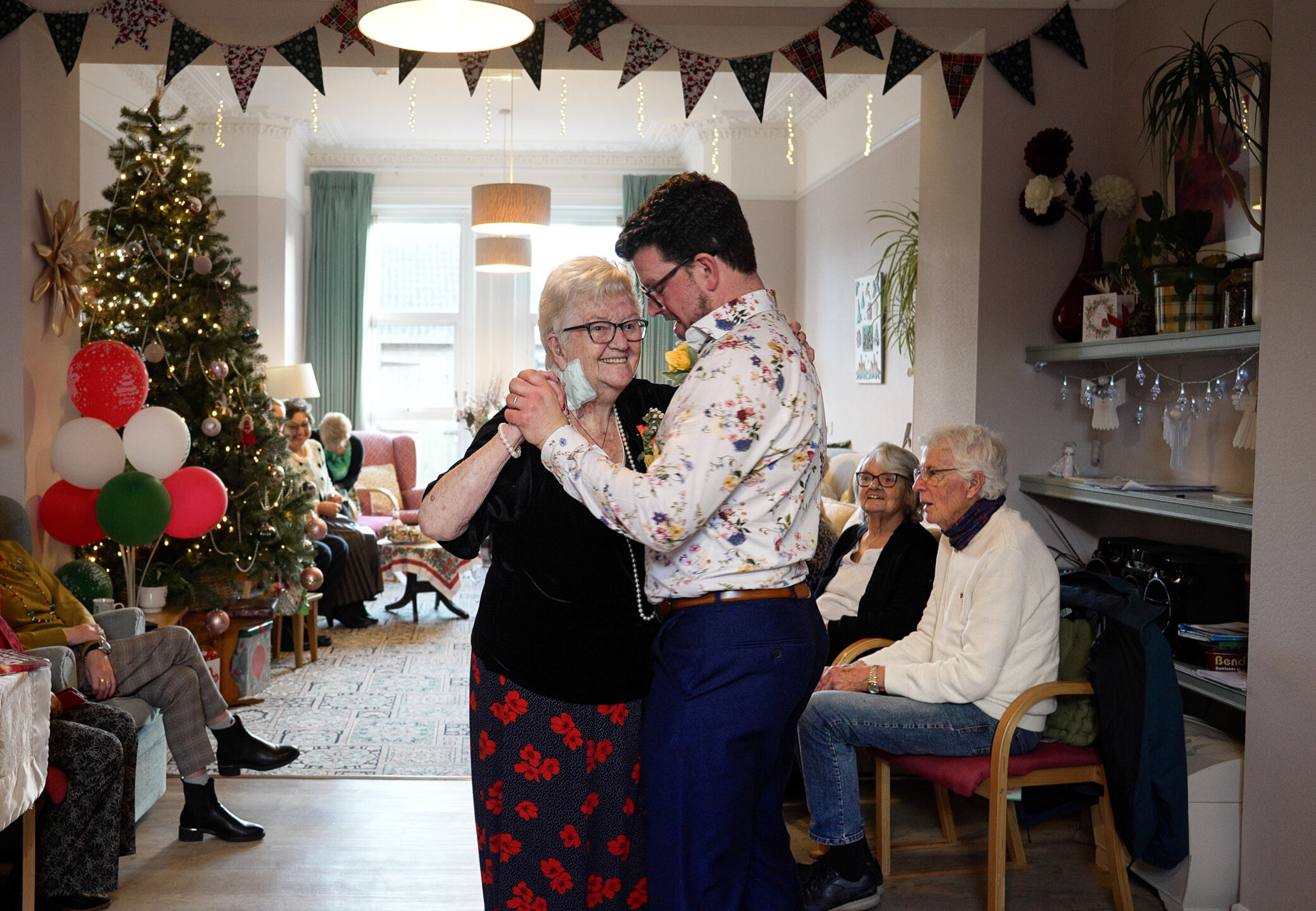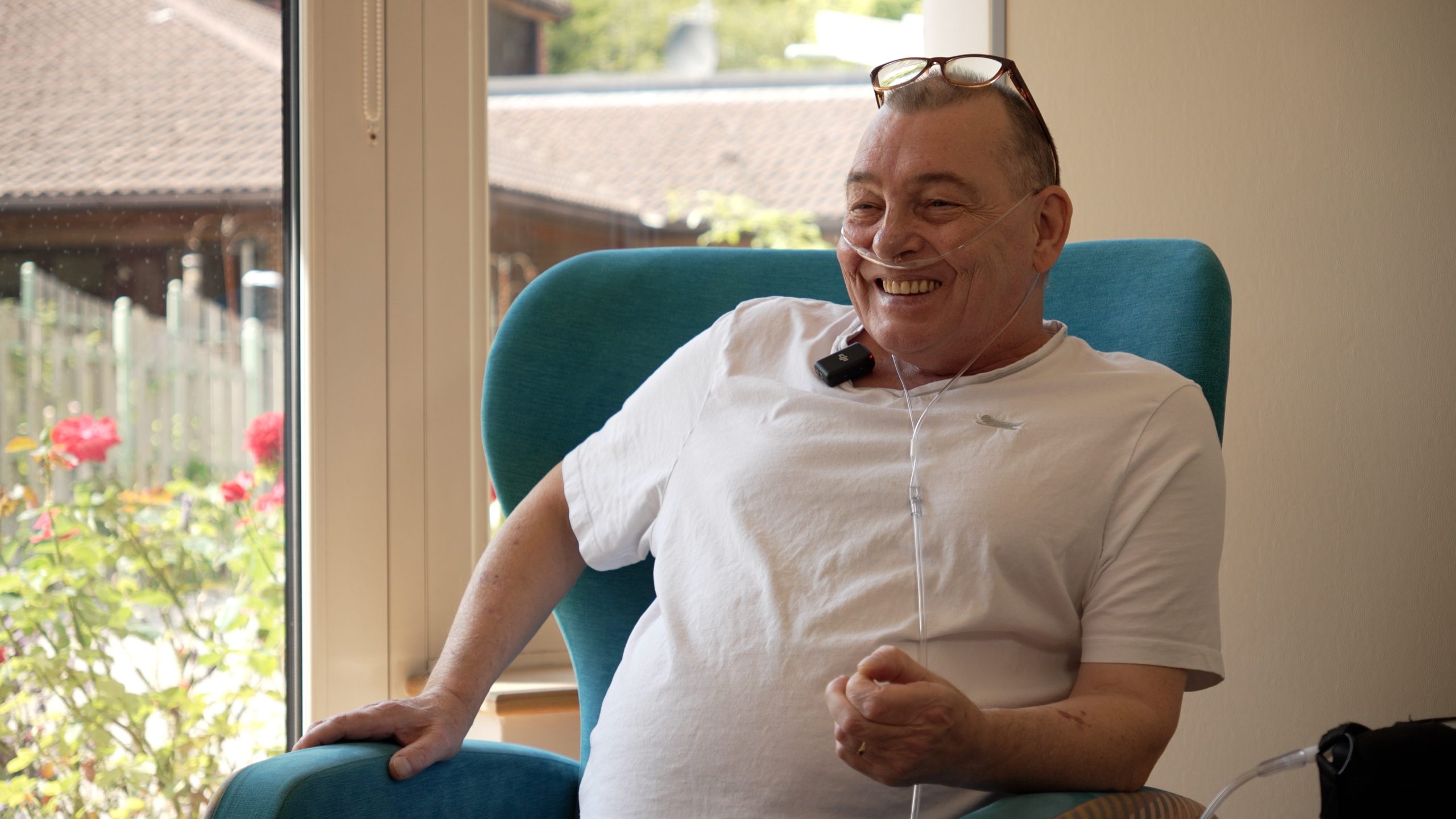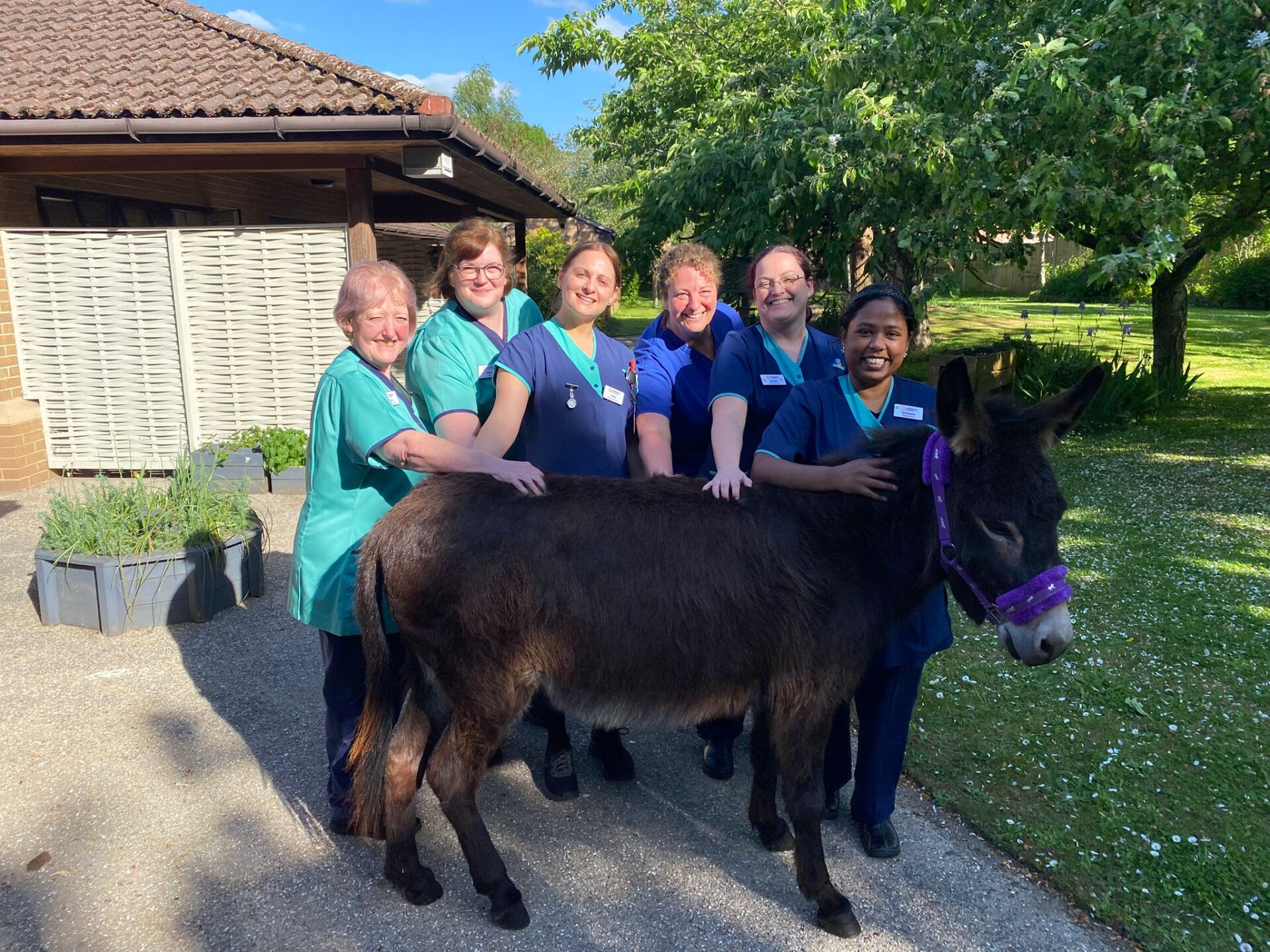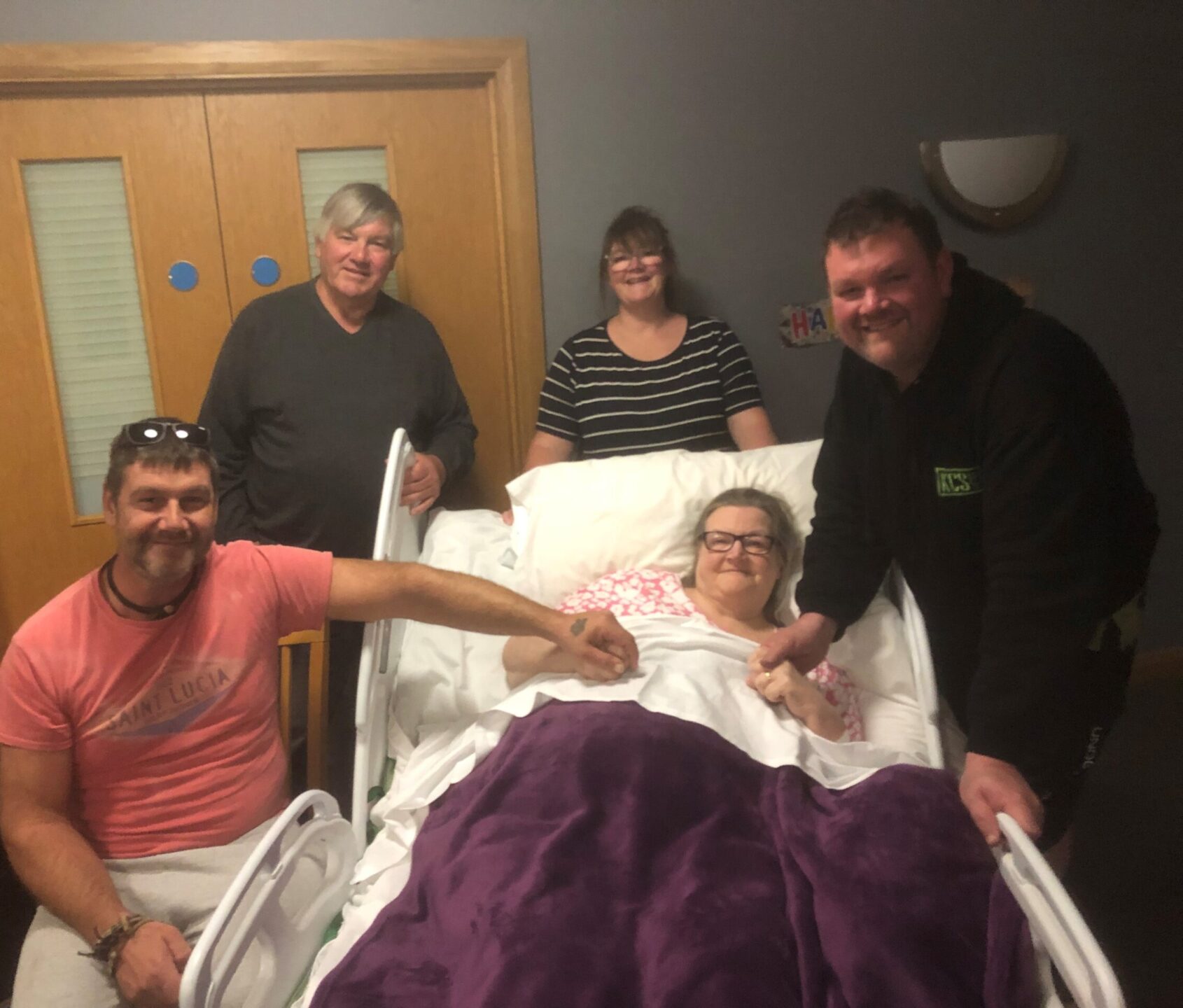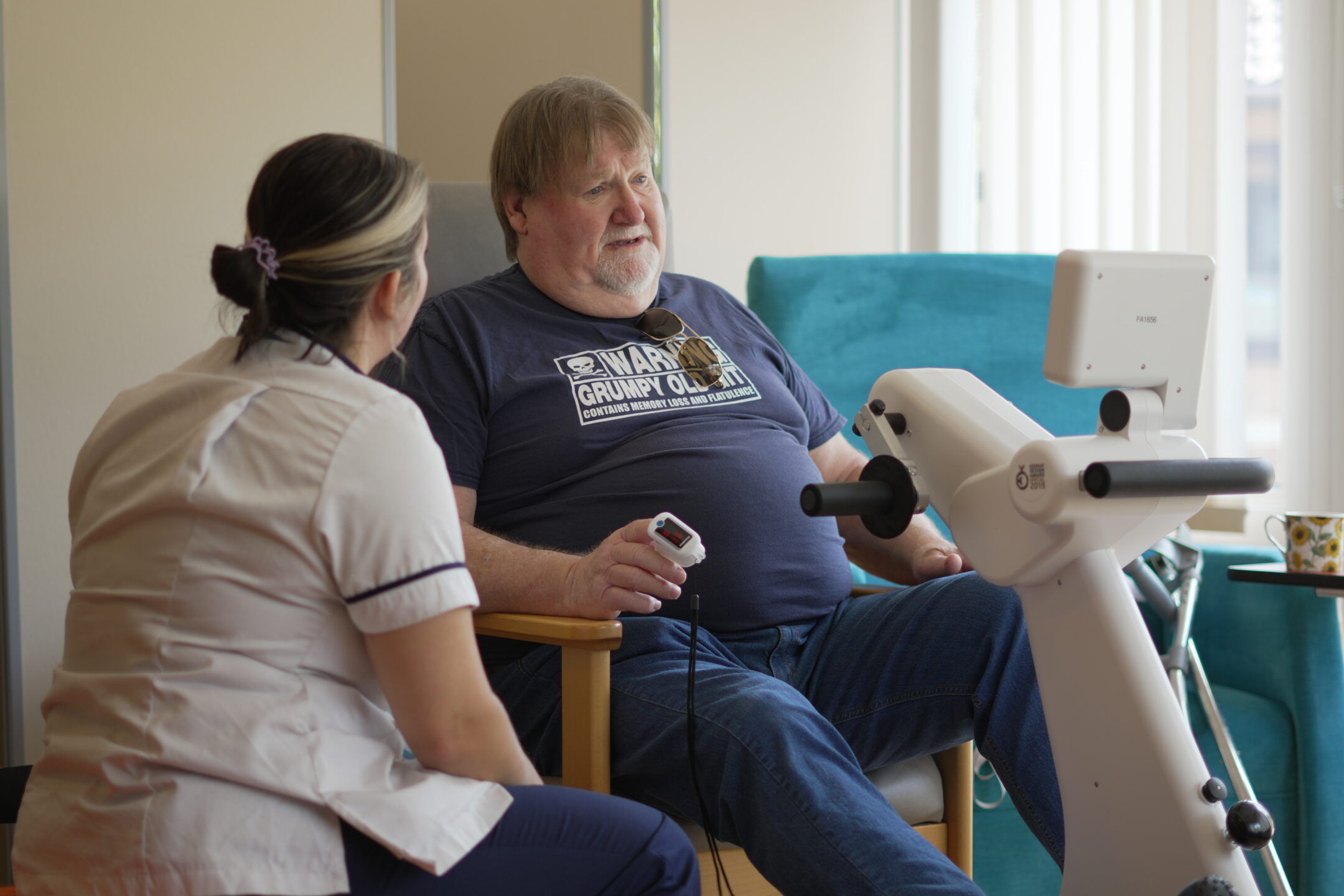Hospice care is a compassionate, holistic approach to supporting individuals with life-limiting illnesses, focusing not on curing disease but on enhancing quality of life. It provides expert medical, nursing, and therapeutic care, emotional, spiritual, and practical support for patients and their families – often in the final year, months, weeks, or days of life.
Currently our patients are commonly referred just two months before they die, typically when their condition has become unstable or is deteriorating. We encourage earlier referrals so patients and their families can benefit from the full range of our services, helping patients to live well for longer.
We take the time to care for the whole person – physically, emotionally, spiritually, socially, and practically – and we support those around them too: families, friends, carers, and health professionals.
An important part of this is advanced care planning, which empowers patients to express their preferences for treatment, place of care, and other end-of-life decisions and wishes. This ensures that care reflects each person’s values and goals – whether that means dying at home, avoiding aggressive interventions, prioritising time with loved ones, or achieving personal goals.
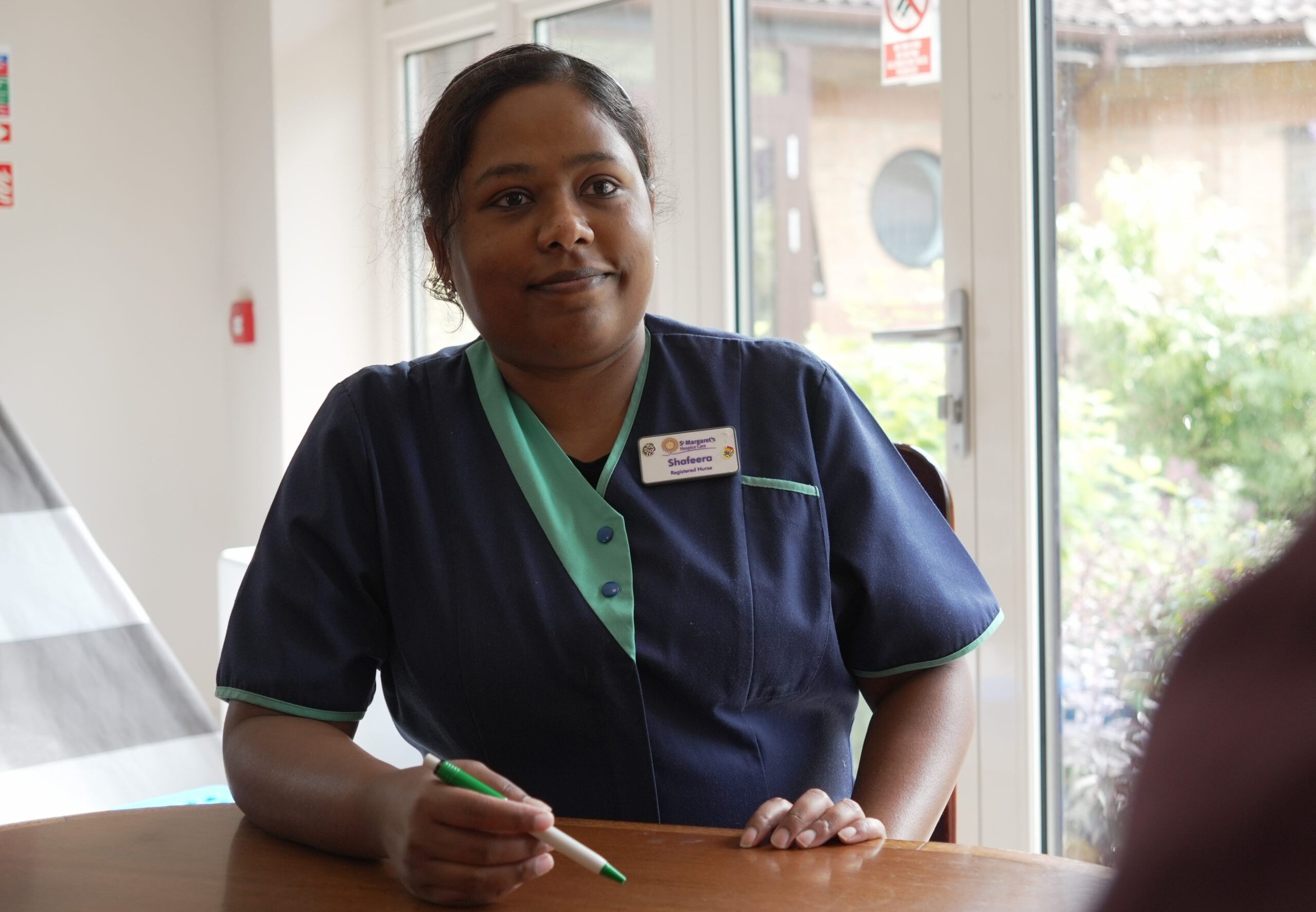
What is the difference between palliative, hospice, and end-of-life care?
Unlike palliative care, which can be provided at any stage of a serious illness and alongside curative treatments, hospice care is specifically for those nearing the end of life, when curative options are no longer pursued. Both focus on comfort, dignity, and person-centred care.
This phase is often referred to as end-of-life care, which typically encompasses the last year of life but becomes more focused in the final weeks and days. End-of-life care includes symptom management, emotional and spiritual support, and helping individuals and families prepare for death.
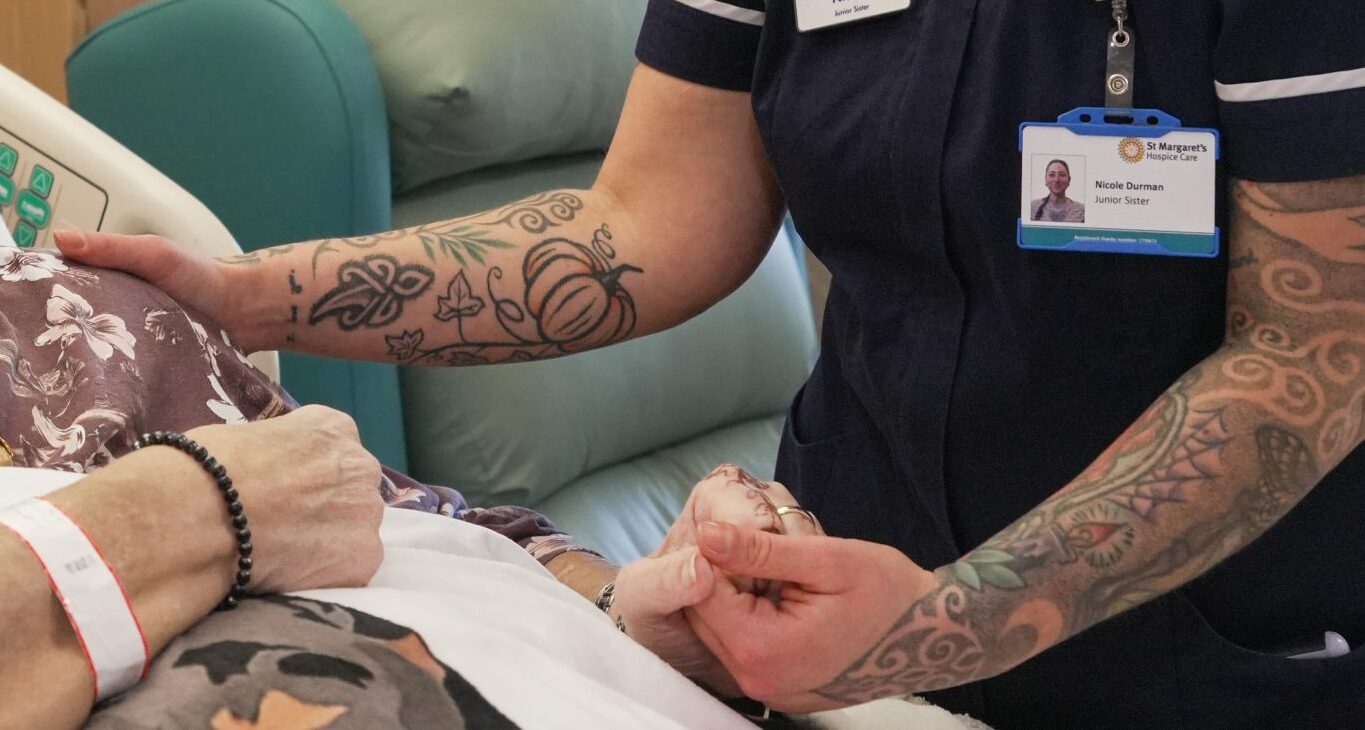
What makes hospice care distinct?
While palliative and end-of-life care can be delivered in hospitals, care homes, or at home by general healthcare providers, hospice care stands apart in several key ways:
- Ethos of Care: A deeply embedded philosophy of holistic, person-centred care for both patients and families.
- Grounding Principles: Recognising dying as a profoundly human experience, and providing care with compassion, dignity, and respect for individual beliefs.
- Funding Streams: Most hospices rely on charitable donations, community fundraising, and philanthropic support, which gives them the freedom to innovate and tailor services to local needs.
- Freedom to Innovate: From art therapy and music sessions to tranquil gardens and family retreats, this financial independence allows hospices to create supportive, homelike environments.
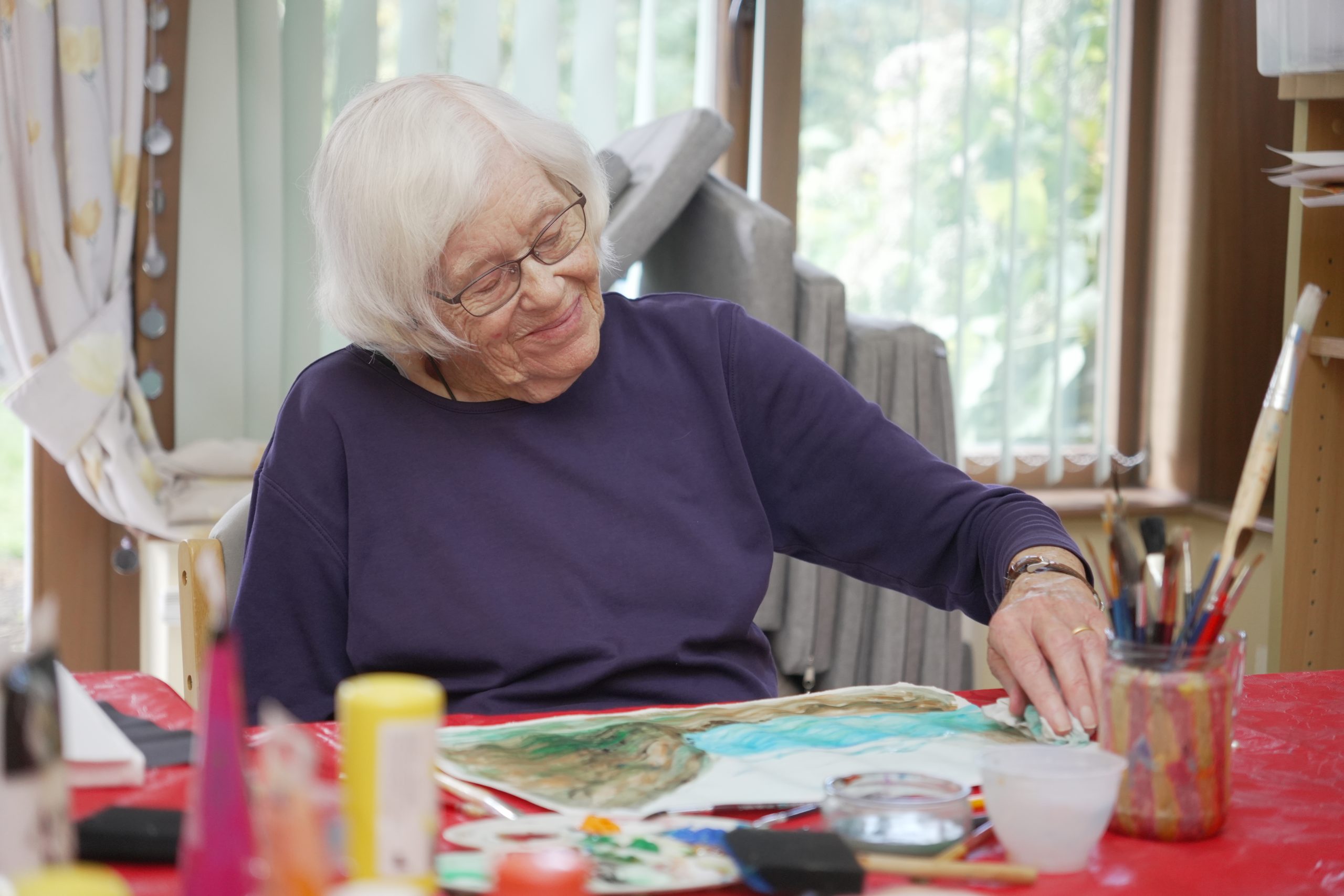
What kind of care is provided?
At St Margaret’s, care is shaped around each person’s needs – whether that’s the patient, their loved ones, or the professionals supporting them. We offer services from our hospice hubs in Yeovil and Taunton, in the community, and in people’s own homes.
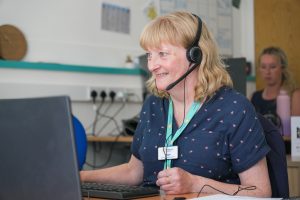 For patients, our community teams provide home visits, symptom management, equipment, medication advice and care planning. Our 24-hour adviceline offers round-the-clock support for urgent issues or reassurance.
For patients, our community teams provide home visits, symptom management, equipment, medication advice and care planning. Our 24-hour adviceline offers round-the-clock support for urgent issues or reassurance.
We also run outpatient clinics and the Sunflower Centre Day Hospice, where patients can take part in therapeutic activities such as physiotherapy and occupational therapy, receive emotional and psychological support, and connect with others in a supportive setting. Our specialist lymphoedema service provides clinical assessment, personalised treatment plans, and education to support self-care. For those needing more intensive input, our specialist In-Patient Unit in Taunton offers short stays for symptom control, or end-of-life care.
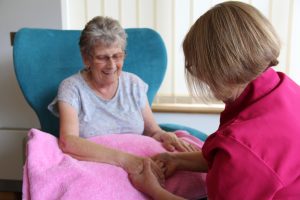 Alongside clinical care, we provide complementary therapies such as massage, reflexology, reiki, aromatherapy, and relaxation techniques. We also offer counselling and psychotherapeutic support. Our spiritual care team supports patients and families in exploring whatever brings meaning and peace, whether religious or non-religious.
Alongside clinical care, we provide complementary therapies such as massage, reflexology, reiki, aromatherapy, and relaxation techniques. We also offer counselling and psychotherapeutic support. Our spiritual care team supports patients and families in exploring whatever brings meaning and peace, whether religious or non-religious.
For families and carers, we offer emotional and practical support through our Family Support Team, including guidance for parents talking with children, one-to-one sessions, and carer groups to reduce isolation. Our Bereavement Support Team offers counselling, groups, and dedicated services for children and young people, with support continuing long after a loved one has died.
For professionals, we provide training, supervision and consultancy through our ECHO hub and education programmes, helping to strengthen palliative care provision across Somerset.
Is there a cost?
All care provided by St Margaret’s is free of charge to patients and their families.
It costs over £15 million a year to run our services. Around £3 million comes from the NHS; the rest is raised through fundraising, donations, legacies, and trading. Every contribution helps ensure we can be there for anyone who needs us, whenever they need us.
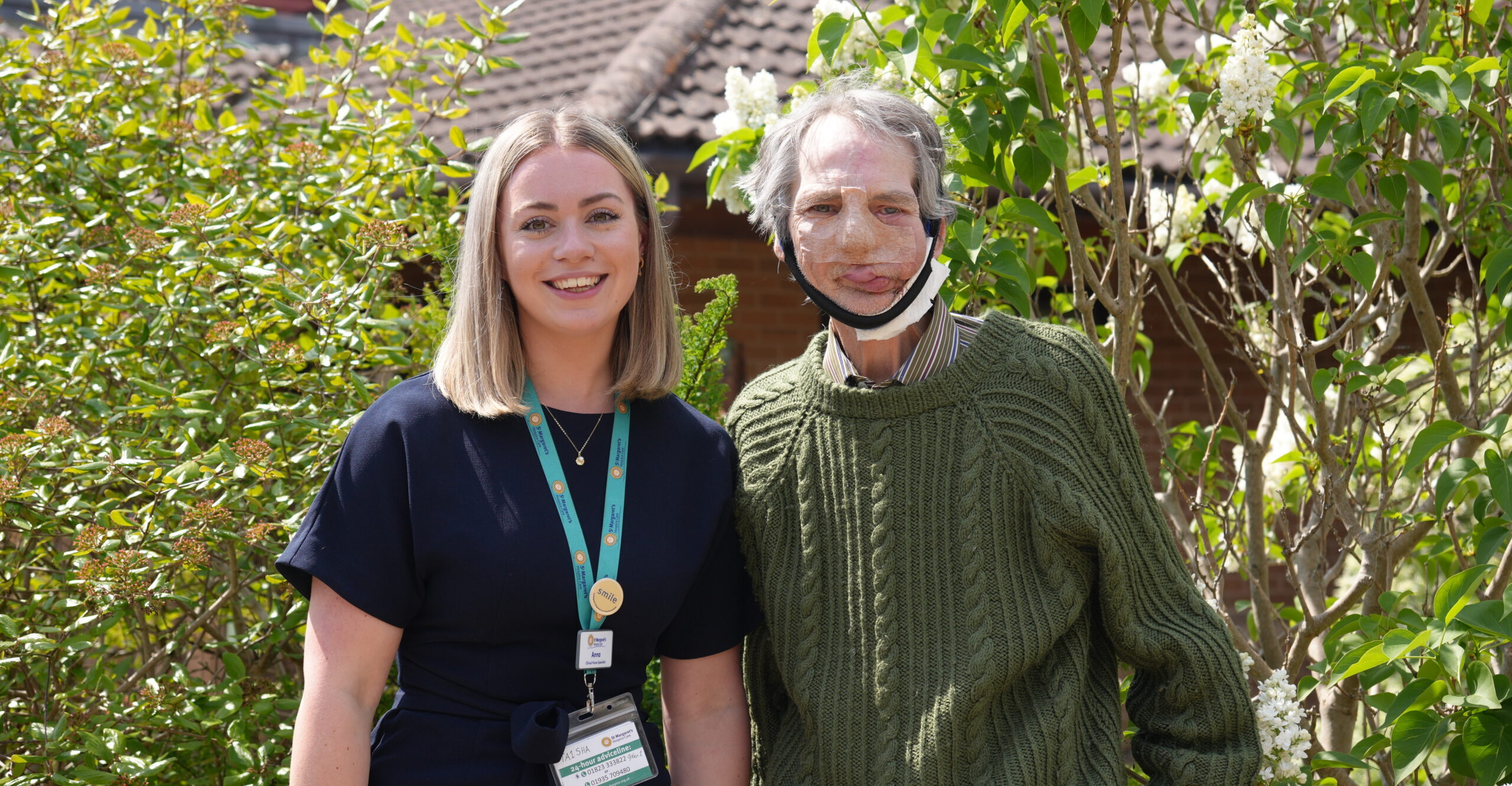
So, what is hospice care?
Hospice care at St Margaret’s is about taking the time to care – getting to know our patients, listening and tailoring a personalised approach. Provided by highly skilled professionals and volunteers, this care is not just about dying—it’s about living well until the end, with dignity, agency, and compassion.

